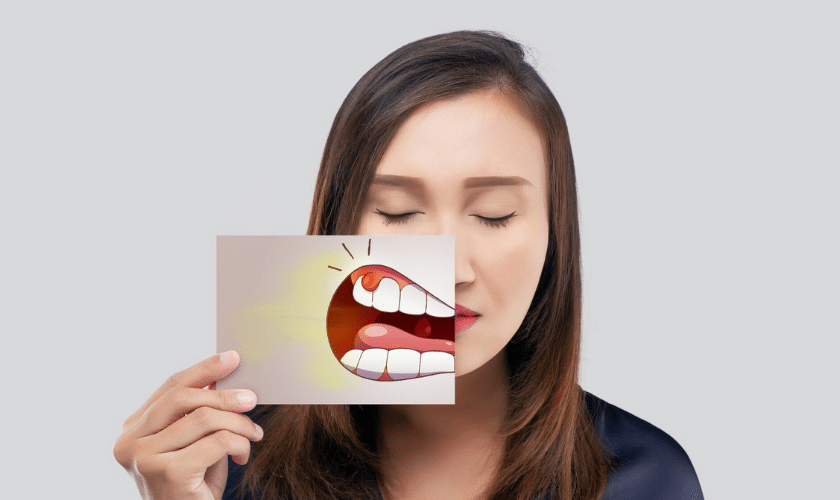Published on August 22, 2024

Gum infections can be more than just a nuisance—they can seriously impact your oral health and overall well-being. If you’ve ever experienced swollen, painful gums, you know how uncomfortable it can be. Choosing the right antibiotic is crucial for effectively tackling the infection and avoiding complications. With so many options available, it can be overwhelming to determine which one will work best for your specific situation.
Understanding the type of antibiotic that will best address your gum infection starts with knowing what you’re dealing with. Different antibiotics target different bacteria, so it’s essential to get it right. In this blog, we’ll break down the most commonly prescribed antibiotics, how to choose the best one, and what to consider to ensure effective treatment.
Let’s dive in and arm you with the knowledge needed to tackle gum infections head-on!
Types of Gum Infections and Their Causes
Gum infections, also known as periodontal infections, can stem from various causes. Understanding these causes helps in choosing the right antibiotic for treatment.
Common Causes of Gum Infections:
- Bacterial Growth: The most frequent cause is bacteria buildup. Plaque that isn’t cleaned away hardens into tartar, leading to gum disease.
- Poor Oral Hygiene: Inconsistent brushing and flossing can allow bacteria to flourish.
- Smoking: Tobacco use reduces blood flow to the gums, increasing infection risk.
- Hormonal Changes: Pregnancy, menstruation, and menopause can affect gum health.
- Underlying Health Conditions: Diabetes and certain autoimmune diseases can make gums more susceptible to infections.
Recognizing the cause is crucial for effective treatment. For instance, antibiotics alone might not address the plaque if poor hygiene is the root cause. A combination of cleaning and medication often works best.
Common Antibiotics Prescribed for Gum Infections
Several antibiotics effectively treat gum infections. Each type targets specific bacteria, so your dentist will choose based on the infection’s nature.
Types of Antibiotics:
- Penicillin: Often prescribed for a range of bacterial infections, including gum infections. It’s effective but can be unsuitable for those allergic to penicillin.
- Amoxicillin: A broader-spectrum antibiotic that covers more bacteria, often used for more severe infections.
- Clindamycin: Useful for patients allergic to penicillin or those with more complex infections.
- Metronidazole: Targets anaerobic bacteria that are common in gum infections, particularly effective when used with other antibiotics.
Your dentist will consider your medical history and the infection’s specifics to prescribe the most effective option.
How to Choose the Right Antibiotic for Your Gum Infection?
Choosing the right antibiotic is essential for effective treatment. Your dentist Richmond will guide you based on several factors:
Key Considerations:
- Type of Bacteria: Different antibiotics target different bacteria. Identifying the bacteria involved helps in selecting the right drug.
- Allergies: Your history of allergies to certain antibiotics will influence the choice.
- Current Medications: Interactions with other medications you’re taking must be considered.
- Medical Conditions: Pre-existing conditions, like liver or kidney disease, can affect how your body handles certain antibiotics.
Your dentist might perform tests to identify the specific bacteria causing the infection. This ensures the antibiotic prescribed will be the most effective for your situation.
Potential Side Effects of Antibiotics
While antibiotics are crucial for treating infections, they come with potential side effects. Being aware of these can help you manage them effectively.
Common Side Effects:
- Digestive Issues: Nausea, vomiting, and diarrhea are common side effects of many antibiotics.
- Allergic Reactions: Symptoms like rash, itching, or swelling can indicate an allergic reaction.
- Yeast Infections: Antibiotics can disrupt the balance of bacteria in your body, leading to yeast infections.
- Drug Interactions: Antibiotics can interact with other medications, affecting their effectiveness or causing adverse reactions.
Always inform your dentist of any side effects you experience. They may adjust your medication or provide recommendations to alleviate discomfort.
Combining Antibiotics with Other Treatments
Antibiotics are often more effective when combined with other treatments for gum infections. This comprehensive approach addresses both the infection and its underlying causes.
Additional Treatments:
- Professional Cleaning: Removing plaque and tartar is crucial for eliminating the infection source.
- Antiseptic Mouthwashes: These can help kill bacteria and reduce infection risk.
- Topical Antibiotics: Applied directly to the gums, these can target infection sites more precisely.
- Gum Surgery: In severe cases, surgical intervention might be necessary to address deep pockets and restore gum health.
Combining these treatments ensures a more effective approach, helping you recover faster and maintain better oral health.
When to Seek Professional Help?
Knowing when to seek professional help is vital for managing gum infections effectively. Here are signs that you should contact your dentist:
Signs to Watch For:
- Persistent Pain: If the pain doesn’t subside or worsens, it could indicate a more serious infection.
- Swelling or Redness: Severe inflammation or swelling in the gums may require professional intervention.
- Fever: A high fever, along with gum pain, could signal a systemic infection.
- Bleeding Gums: Gums that bleed frequently or excessively need immediate attention.
Choosing the right antibiotic for gum infections is crucial for effective treatment. By understanding the different types of antibiotics and their side effects, you can make an informed decision with your dentist. Combining antibiotics with other treatments, like professional cleaning and antiseptic mouthwashes, enhances recovery. Always seek professional help if symptoms persist or worsen. Prioritize your oral health by following your dentist’s recommendations and maintaining good oral hygiene to prevent future infections.
